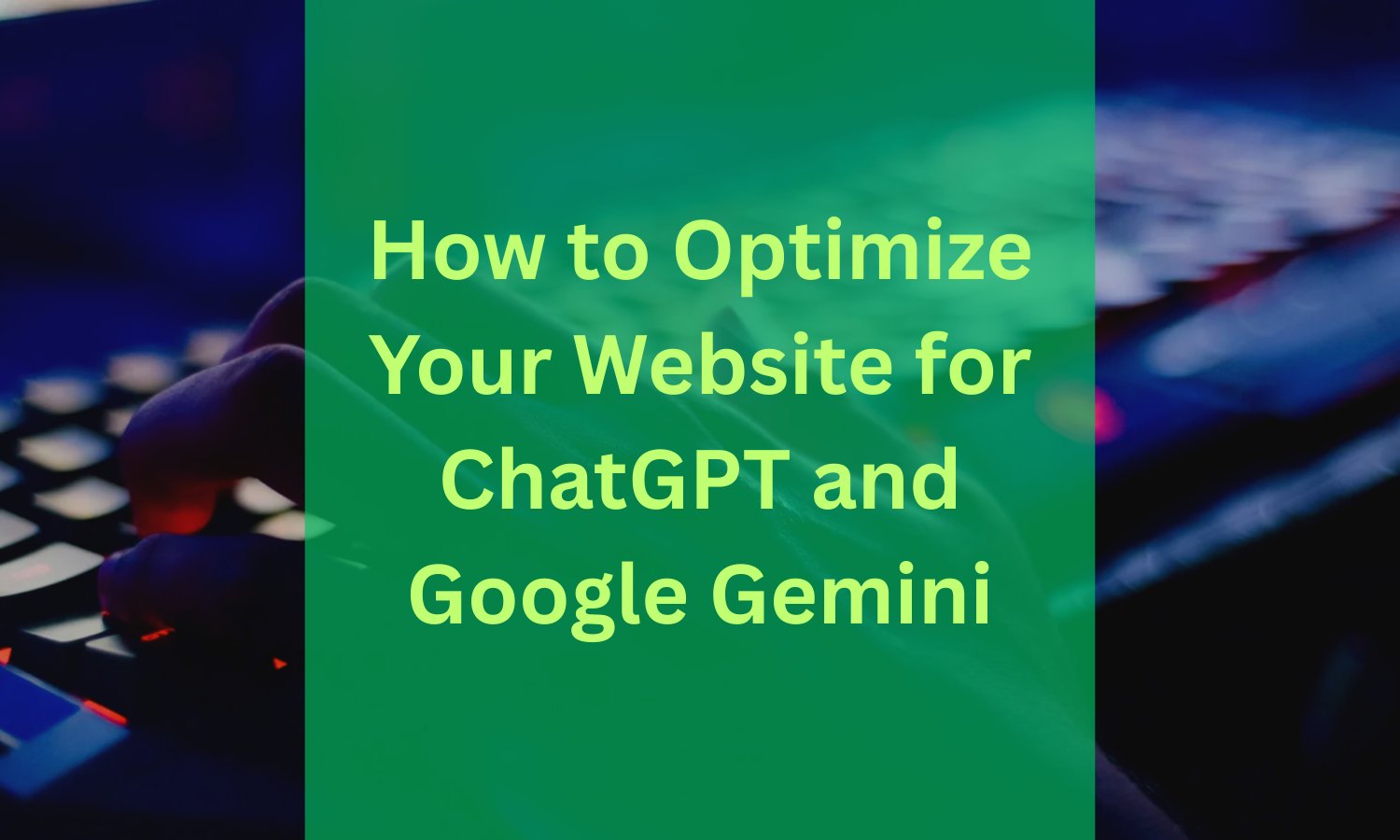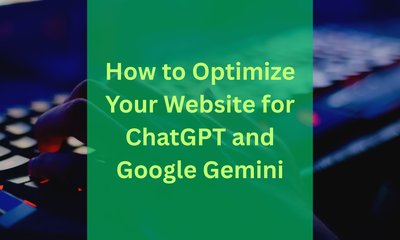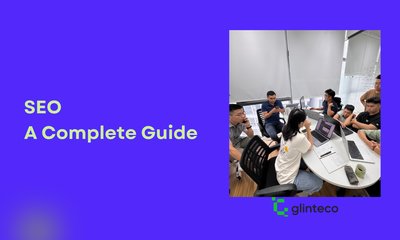How to Optimize Your Website for ChatGPT and Google Gemini
By khoanc, at: Feb. 19, 2025, 7:52 p.m.
Estimated Reading Time: __READING_TIME__ minutes


Because ranking on Google isn’t enough - now you need to be remembered by AI.
Why You Should Care
In the past, showing up on Google’s first page was the holy grail of online visibility.
In 2025? That’s only half the story.
Now, millions of people are turning to ChatGPT, Google Gemini, Perplexity, and other AI assistants to get direct answers, not search results. And these AI tools don’t just pull from Google’s index. They summarize, generate, and synthesize information, meaning your website has to exist in their training context, not just search rankings.
If your business isn’t showing up in these AI-generated answers, you’re missing out on a growing wave of high-intent visibility.
The New Rules of Optimization
Here’s how to optimize your site for both ChatGPT and Google Gemini (a.k.a. Generative Engine Optimization – GEO):
1. Write for Humans, Structure for Machines
-
Use clear, direct language that answers questions - think FAQ-style headings, listicles, and how-tos.
-
Add semantic HTML (headings like h1, h2, h3 or article,..) so AI can parse meaning better.
-
Break down long paragraphs. AI doesn’t do well with text walls.
2. Add Structured Data (Schema Markup)
-
Use JSON-LD schema for articles, products, reviews, and organization info.
-
This helps AI tools understand context, not just crawl text.
-
Tools to help: Schema.org, Google’s Rich Results Test
3. Use FAQ Blocks
AI LOVES questions.
Include a dedicated FAQ section with real customer questions and clear, short answers. For example:
Q: How does Glinteco help with tax integrations?
A: We automate tax calculations and reporting using tools like Vertex, Sovos, and QuickBooks across your CRM/ERP stack.
Bonus: Use FAQ Schema markup to double your SEO + GEO power.
4. Get Referenced Across the Web
ChatGPT and Gemini don’t just crawl your website, they pull from:
-
Blogs
-
News sites
-
Reddit
-
GitHub
-
LinkedIn
-
Forums
-
Public datasets
Get your business mentioned in reputable sources. Guest posts, expert roundups, open-source contributions, and discussions in relevant communities are key to increasing your AI trust signal.
5. Be Factual, Be Credible
AI tools prioritize accuracy and trustworthy data. Make sure your content:
-
Is well-researched and cites sources
-
Avoids vague marketing fluff
-
Uses real numbers, dates, names, and examples
-
Links to authoritative sources when relevant
6. Keep Updating Old Content
ChatGPT 4 and Gemini are trained on snapshots of the internet.
Keep your site updated regularly to:
-
Improve crawl frequency
-
Stay relevant in newer AI training datasets
-
Trigger re-indexing from both search engines and AI models
7. Make Your Brand Discoverable
Clearly state who you are, what you do, and what industries you serve on every key page.
Example:
“Glinteco is a Vietnam-based IT outsourcing company specializing in Django, ReactJS, and AI-powered software development for startups and SMEs worldwide.”
Bonus: Test Your AI Visibility
Want to see if you’re showing up?
Try asking:
“What is Glinteco?”
“Best Django development companies in Southeast Asia”
“How to automate tax calculation using Vertex and QuickBooks?”
If ChatGPT or Gemini don’t mention you… it’s time to optimize.
Final Thoughts
Optimizing for ChatGPT and Gemini is not about replacing SEO, it’s about expanding your digital strategy to where users are actually asking questions.
At Glinteco, we help businesses adapt to this shift through smart content, structured data, and AI-savvy visibility tactics. Because in a world of AI answers, being clickable isn’t enough, you need to be quotable.
Frequently Asked Questions (FAQ)
Q1: How do I make my website show up in ChatGPT answers?
A: Focus on clear, factual content, use structured data (like schema.org), and get mentioned on reputable sources across the web. ChatGPT pulls from a wide range of training data, not just your site.
Q2: Is GEO replacing SEO?
A: No, GEO and SEO work best together. SEO brings traffic from search engines like Google, while GEO ensures your brand is included in AI-generated answers. Think of GEO as SEO’s next evolution.
Q3: What kind of content helps with GEO optimization?
A: Content that directly answers user questions, includes facts and examples, uses structured formatting, and is referenced across the web (blogs, forums, etc.).





